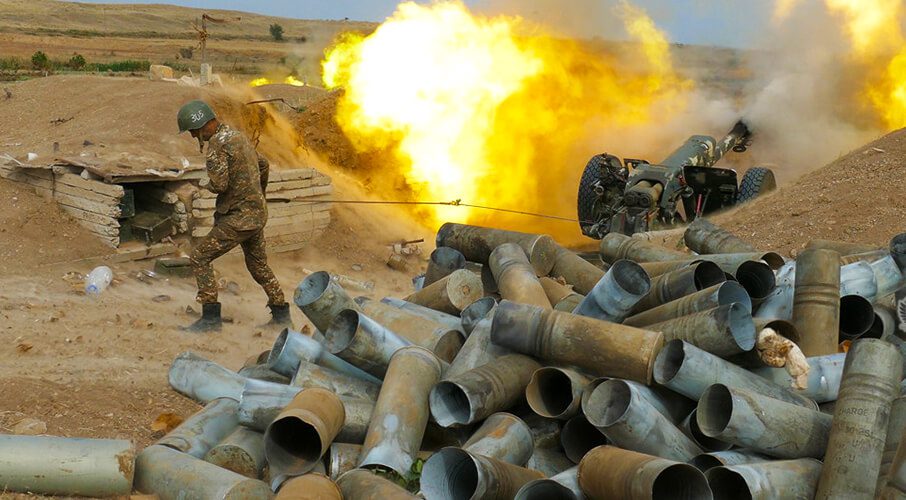
Even as we deal with the effects of the pandemic at home, we cannot ignore developments and conflicts abroad, writes Richard Shimooka in the National Post. Below is an expert from the article, which can be read in full here.
By Richard Shimooka, October 10, 2020
Over the past several weeks, Armenia and Azerbaijan have engaged in an escalating conflict over the enclave of Nagorno-Karabakh. Canadians can be forgiven for ignoring the conflict, given the challenges closer to home surrounding the pandemic. Yet there are a number of reasons why they should take notice, not least because it offers insight into what conflicts will look like in the coming years.
The fighting between the two countries is symptomatic of an increasingly unstable international system. The dispute between the two countries has been referred to as a frozen conflict, with the last major outbreak of violence occurring in 1994. Since then, multiple international efforts have been made to stabilize and resolve the dispute.
Yet over the past decade, the international order has started to fray. Western powers have become increasingly reserved towards intervening in foreign conflicts. Into this vacuum, regional powers have started to assert their interests. The Azerbaijan-Armenia conflict has become, in part, a proxy war between Turkey and Russia. Similar conflicts are more likely to occur in the aftermath of the pandemic, which has saddled countries with heavy debt loads and reduced economic prospects.
Thankfully, the repercussions of the conflict over Nagorno-Karabakh are unlikely to be significant for Canada. However, this is by no means the case for every potential conflict. Syria, for example, was left to implode in the aftermath of the Arab Spring. Since then, multiple competing interests have started to play out in the political vacuum — including those of Russia and Turkey — and the conflict has spawned a massive humanitarian and political crisis.
***TO READ THE FULL ARTICLE, VISIT THE NATIONAL POST HERE***




